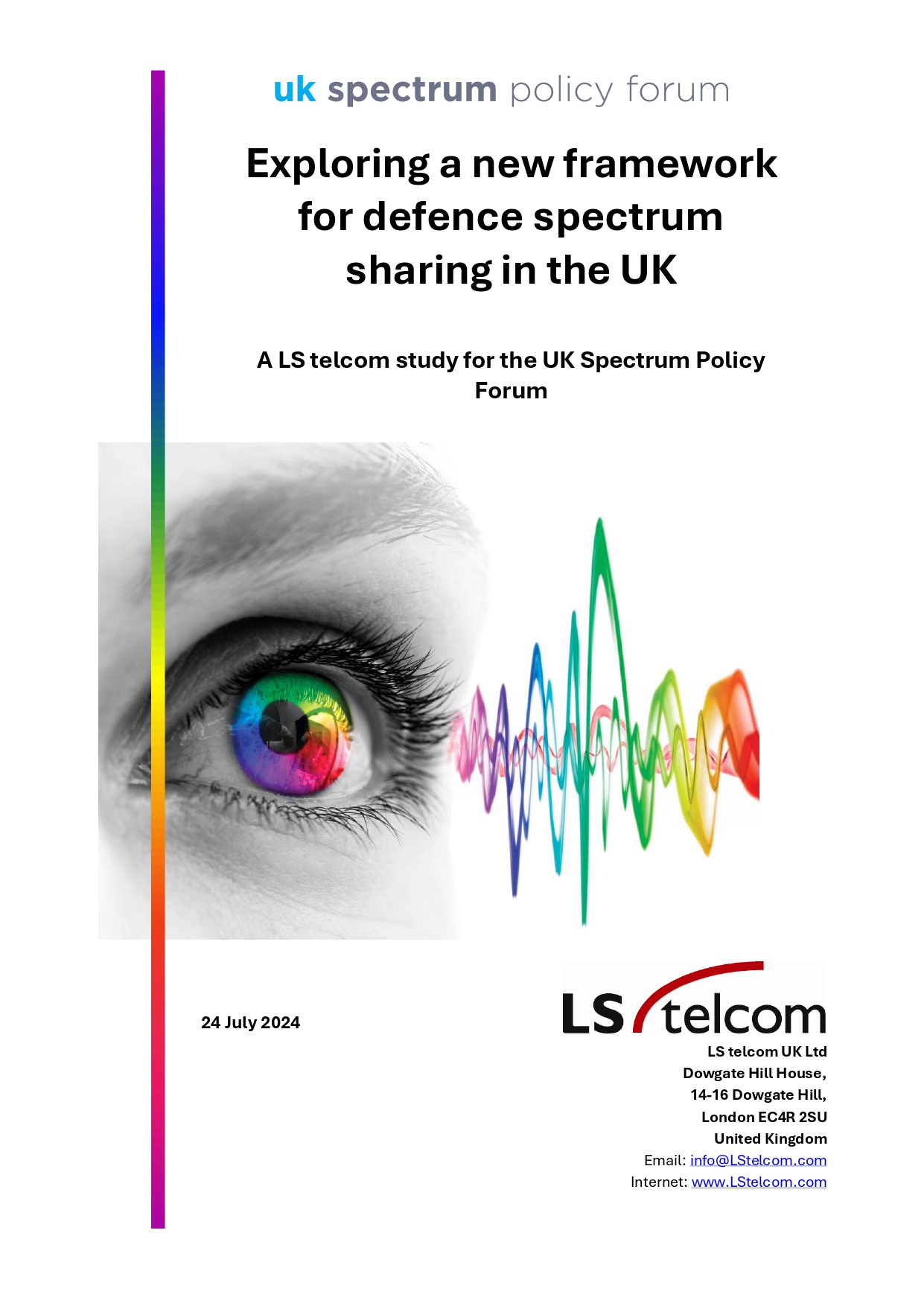UK SPF Report: Exploring a new framework for defence spectrum sharing in the UK
Commissioned by the UK Spectrum Policy Forum (UK SPF), this study examines the future of spectrum sharing between civilian and military users in the UK. It focuses on improving civilian access to MOD spectrum, aiming to create a framework that balances civilian use with the strategic needs of Defence. The study involved gathering information from stakeholders, including the mobile industry, utilities, PMSE, satellite, and rural broadband sectors, as well as engaging with Ofcom and DSIT. A dedicated workshop with the MOD was also conducted to understand current sharing processes and collaboration with Ofcom.
Key Findings and Potential Scenarios
The case for understanding the issues related to sharing spectrum with defence applications is timely, coming at the end of the Public Sector Spectrum Release (PSSR) Programme, which began in the early 2000s to make spectrum available for private sector use. The UK Ministry of Defence (MOD) is interested in facilitating additional private and commercial access to its spectrum holdings when not needed, by adopting a more agile framework.
The MOD recognizes that economic growth, including the need for commercial spectrum access to military frequencies, is in the national interest of the UK. Enabling greater civilian use of defence spectrum often conflicts with national security interests, making spectrum sharing a critical priority. This priority aligns with the current and future direction of both DSIT and Ofcom, as well as international trends towards embracing spectrum sharing.
A notable international example is the Citizens Broadband Radio Service (CBRS) introduced in the US in 2020, which set a precedent for defence-managed spectrum sharing approaches. CBRS demonstrated that coexistence is possible through a system protecting defence users while enabling commercial mobile service.
Within that context, the report identifies specific MoD spectrum bands that might interest commercial entities and outlines access methods in collaboration with Ofcom and MOD. To understand future sharing potential, the report analysed four scenarios:
- Maintain the status quo without enhancing current sharing approaches.
- Extend Ofcom's SAL framework for more harmonization and standardization benefits
- Automated Dynamic Spectrum tools application
- MOD as an SMO for a strategic approach to sharing
Recommendations
Based on the analysis, the study provides several recommendations for managing Crown spectrum. Expansion should be incremental and based on verified demand, ensuring that changes in sharing regimes do not prejudice existing sharing. Information gathering is essential before any implementation to assess the credibility of the demand for the restricted availability of spectrum within MOD's holdings.
Ofcom should manage access to MOD spectrum for civil users. Applications that cannot be supported should be published to assess sharing priorities. Coordination between MOD and Ofcom is crucial to ensure security and provide clear decisions on sharing conditions without disclosing the rationale to applicants.
MOD should develop a comprehensive spectrum roadmap that considers long military equipment lifecycles, emerging technologies, operational needs, and international regulatory developments such as WRC27. Roles within Ofcom and MOD involved in managing and maintaining the new framework should be formalized. Additionally, spectrum constraints and sharing methodologies should be identified and agreed upon to facilitate effective sharing.
Active participation in regulatory and policy fora by MOD and Ofcom is recommended to incorporate agreed best practices in future sharing frameworks. The outcomes of this study should be shared with friendly/NATO countries, acknowledging parallel work within CEPT that could benefit the wider defense community while considering key defense requirements. Adequate resources should be allocated to support planning and analysis for WRC27.
Contact us

Tales Gaspar
Tales has a background in law and economics, with previous experience in the regulation of new technologies and infrastructure.

Sophie Greaves
Sophie Greaves is Associate Director for Digital Infrastructure at techUK, overseeing the Telecoms Programme, the Data Centres Programme, and the UK Spectrum Policy Forum.



